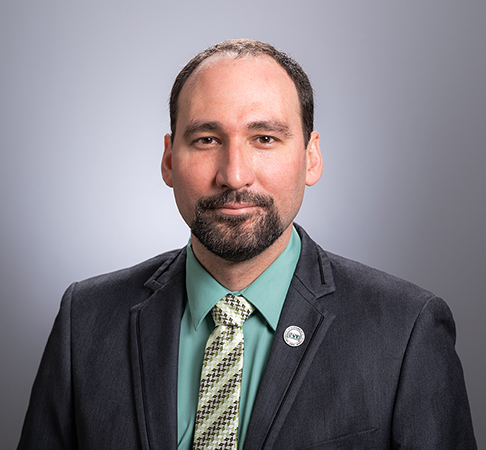Johane Bracamonte, Ph.D., a postdoctoral researcher in the UAB Department of Biomedical Engineering, was recently awarded an American Heart Association (AHA) postdoctoral fellowship. The award includes nearly $140,000 in funding over the next two years.
Bracamonte is a researcher in the lab of School of Engineering Dean Jeff Holmes, M.D., Ph.D., where he conducts research on computer modeling of the heart—a project that has the potential to improve the quality of life of patients with dyssynchronous heart failure.
“For the heart to work properly, all of its parts must be synchronized,” Bracamonte explained. “When the heart gets dyssynchronized, it slowly gets damaged, and if left untreated can lead to serious diseases and even death.”
To correct this problem, doctors perform cardiac resynchronization therapy (CRT)—a technique that has proven effective in roughly 60 percent of patients. “We don’t yet know the reasons why this technique works in some patients and not others,” Bracamonte said. “There are a number of variables that could affect outcomes, including the placement of electrical leads on the heart, differences in medications, other health conditions or any other of the variety of person-to-person differences.”
Previous studies and computer models have focused on the average response of a group of patients and animals to a treatment, but typically don’t address the wide variability in responses observed in clinical practice. Bracamonte’s goal is to create a customizable computer program to predict the outcome of CRT for a given patient. “The computer program will use simple equations to simulate the beating of the heart, the blood flow, the response of the heart cells to drugs, and how all these relate to each other,” Bracamonte said. “The program will take the patient-specific characteristics of the heart, health conditions, drug treatments, and CRT data as inputs. The outputs will be predictions of how much the heart healed or got damaged compared to how it was before CRT.”
To conduct this study Bracamonte will use data from 100 patients with left branch bundle block (LBBB), which is one cause of heart dyssynchronization. The data will be randomly split into two sets, with one being used to fine-tune the computer simulation and the second used to validate its predictions.
Bracamonte is one of two BME researchers to receive AHA awards this year, joining Jiacheng “Jason” Sun, a graduate student working in the lab of BME Chair Jianyi Zhang, M.D., Ph.D. A third AHA Award went to Meimei Wang, a biomedical sciences student who works in the lab of BME Assistant Professor Yang Zhou, Ph.D.
